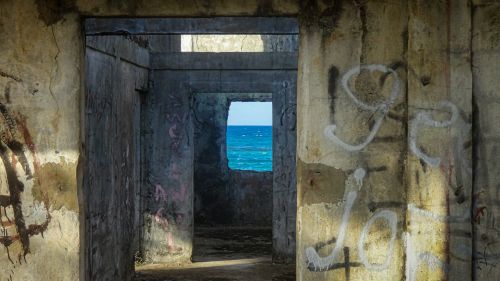Majority of Nicaraguans Support Early Elections

The current polarization in Nicaragua between the government supporters and the opposition coalition of students, farmers, civil society groups, and business leaders makes compromise a challenge.
Nicaragua
Times are tough in Nicaragua. On April 18-19, protesters from two movements took to the streets to criticize the Sandinista government response to forest fires in a nature reserve and to object to government plans for unpopular pension reforms. The demonstrations spiraled into a political crisis when police and armed pro-government groups (including the Sandinista Youth) used violence against the participants, triggering follow-on demonstrations, looting, and additional deadly repression. A few days after the protests began, Nicaraguan President Daniel Ortega had retracted the plans for pension reform. But by then many in opposition had expanded their demands to include calls for democratic reforms and for Ortega—who is serving his third term in office—to step down.
The estimate of actual deaths during this time varies and includes police deaths; human rights groups say the figure is about 300 with about 2000 injured. In addition, the government initiated a crackdown on independent journalists which has continued into the new year.
As I headed to Nicaragua for the month of January to work remotely, improve my Spanish, and escape the polar temperatures in Chicago (with two chihuahuas in tow), this much I knew about the situation.
But over the weeks I learned that the state of affairs was much more complicated. I'm not an expert on Nicaragua or Central America. My Spanish is limited but I was able to have conversations with everyday Nicaraguans in Granada, Leon, and Masaya: hotel and restaurant workers, taxi drivers, guides, Spanish instructors, and farmers. These conversations are merely anecdotal, I’m not going to make broad generalizations from singular meetings like some writers do. But there has also been some nationwide polling on the issues, thanks to CID Gallup, a research firm founded in Costa Rica with affiliates throughout central America.
Many were shocked at the government's disproportionate response against its own people – a May 2018 CID Gallup survey found that 68 percent agreed with the actions of the students and other protesters versus 22 percent who supported the actions of the police. Because many of the people I spoke with worked in tourist-based businesses, they were particularly concerned about the economic impacts of the unrest. Hotel and restaurant proprietors have had to let their staff go or decrease their hours, close their businesses and/or slash their prices. CID Gallup's January 2019 survey found that 46 percent of Nicaraguans said their family economic situation had worsened, compared to 25 percent the year prior.
Many are waiting for new elections, currently scheduled for 2021, hoping that will solve the political turmoil. Others would like President Ortega to step down now or at least hold early elections. Ortega has ruled out both of these options arguing that it would violate the constitution. Constitutional or not, a January 4-10, 2019 survey found that a slight majority of Nicaraguans believe the elections should be moved forward to 2019 (54%, though down from 60% in September 2018). Just over a third (34%) prefer to wait until 2021 when officially scheduled.
Whether Ortega would leave office peacefully is an open question. Moreover, it’s unclear what opposition party or candidate the public would support. The January 2019 survey found that sixty-eight percent of the public say they are not inclined to support any political party in the country. Nor is there a clear favorite among the opposition figures.
On the other hand, there is a core of group of at least a quarter of Nicaraguans who continue to back the Sandinista regime (25% in the January CID Gallup poll, down from 31% in May 2018 and 56% in January 2018). The president of CID Gallup noted in El Nuevo Diario that roughly three in ten Nicaraguans have consistently supported the Sandinistas since 1990. In defense of the government, some pro-Sandinista Nicaraguans that I spoke with criticize western media reports for ignoring key details. They point out that several police were killed in the violence, not just demonstrators – and that not all protesters were non-violent. Many government buildings, businesses, and infrastructure had been attacked. And they state that the very action that sparked the protests—the social security reforms—deserves more explanation. The need for pension reform was first raised by the International Monetary Fund (IMF); financing for Nicaragua’s social security system was on course to run out of cash by 2019. The government had apparently rejected the earlier IMF reform options that were more severe than those Ortega had attempted to implement.
Sandinista backers rightfully point to the great gains the Sandinista government has achieved in cutting poverty in half in Nicaragua and increasing Nicaragua's per-capita GDP. Some also describe the protest movement as a failed coup, potentially backed by the United States to prevent Nicaragua from becoming a successful leftist model outside of the US orbit. According to the Economist Intelligence Unit, in the face of international criticism for human rights violations during the conflict, Ortega developed this same narrative—an opposition coup backed by foreign supporters—to explain the violence. The government could also use the recent economic sanctions imposed by the United States to feed into this line of argument.
In sum, the picture seems to be more nuanced than some media outlets have reported. The government apparently bungled the rollout of the social security reforms, inadequately preparing the public for the changes and then responded with excessive violence to the public demonstrations against those reforms—especially considering that the government had earned majority public support by 2018. The current polarization in the country between the government supporters and the opposition coalition of students, farmers, civil society groups, and business leaders makes compromise a challenge. Regardless of which side they favor in the current climate, Nicaraguans are living with great uncertainty about the future.

